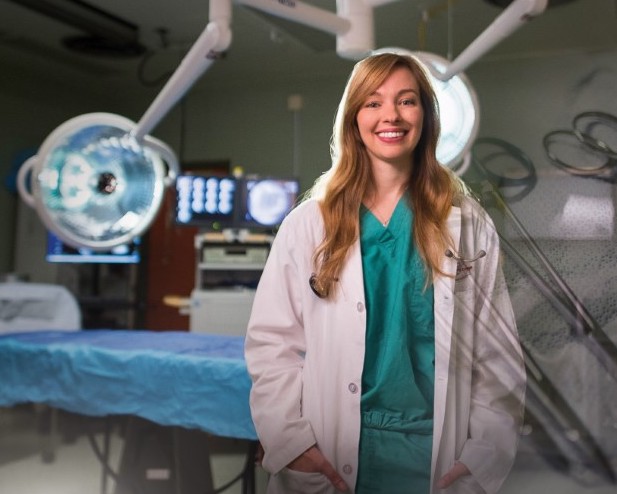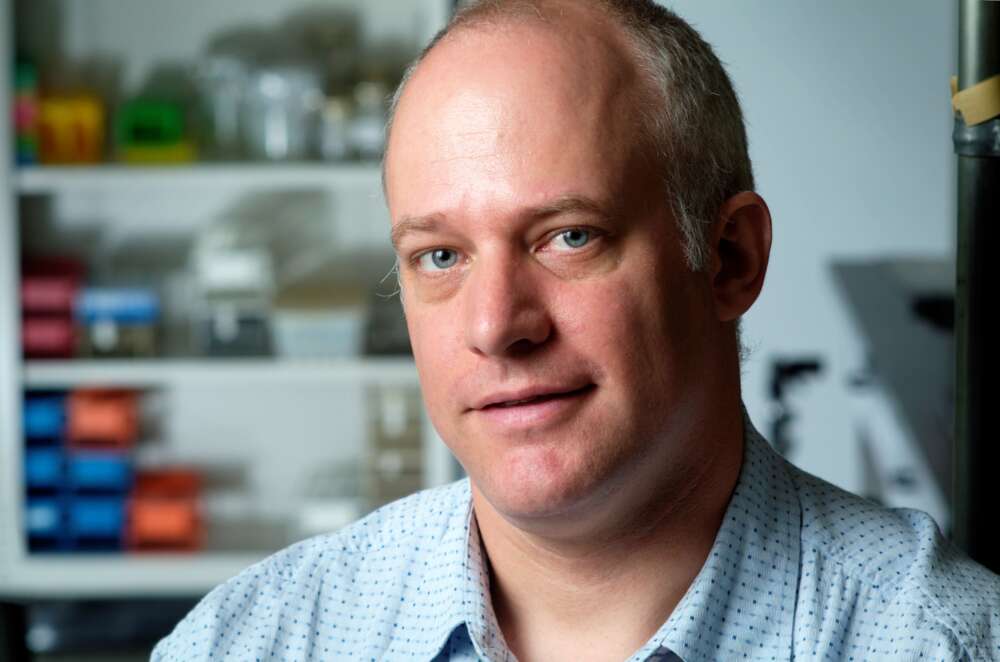
The Institute for Comparative Cancer Investigation at the University of Guelph’s Ontario Veterinary College has appointed two new co-directors to lead the institution as it continues to take an integrated approach to studying cancer in animals and people.
Profs. Michelle Oblak, a veterinary surgical oncologist and professor in OVC’s Department of Clinical Studies, and Geoff Wood, a cancer researcher and professor in OVC’s Department of Pathobiology, took the helm as co-directors of the ICCI on Sept. 1.
They take over from biomedical sciences professor Brenda Coomber and internal medicine and oncology professor Paul Woods, Department of Clinical Studies. After more than 12 years of leading ICCI as co-directors, they completed their terms on Aug. 31.
Oblak and Wood have served as assistant co-directors for the past five years.
In addition to enhancing cancer research among U of G scientists, ICCI facilitates collaboration with external academic cancer researchers and industry partners. Beyond ongoing research, ICCI members offer advanced care for patients in the Mona Campbell Centre for Animal Cancer at the OVC Health Sciences Centre, which is dedicated to cancer diagnosis, treatment, teaching and clinical research. The ICCI also maintains a tumour bank and frozen blood samples for future studies.

“The ICCI acts to catalyze interdisciplinary research, not only for clinicians and cancer biologists but also to take a truly One Health approach, engaging a diversity of disciplines of relevance to cancer,” said OVC dean Jeff Wichtel.
“I’m grateful for the leadership and vision Profs. Brenda Coomber and Paul Woods have provided to establish the success of the ICCI we see today,” said Wichtel. “Our new co-directors, Profs. Oblak and Wood, will no doubt further this success as they work with stakeholders to set an exciting future course for the ICCI.”
Research from the centre has made international headlines, including the following:
- Woods studies comparative oncology and cancer treatment in companion animals and has been involved in a number of international clinical trials, including those aimed at advancing care in bone cancer (osteosarcoma) in dogs through novel therapeutics, and vaccine-based treatment to kick-start dogs’ immune systems in fighting the cancer.
- Coomber has studied lymphoma in dogs and helped develop a predictive biomarker test to assess a patient’s response to chemotherapy– research that could translate to help people.
- Wood recently worked on a One Health study comparing cancer genomes from human mucosal melanoma, canine oral melanoma and equine melanoma. The study was the first to sequence equine tumours, and first to compare the genomes of all three species.
- In 2018, Oblak led a successful reconstructive skull surgery, implanting a custom 3-D printed skull plate in a dog with a large cancerous growth on her skull.